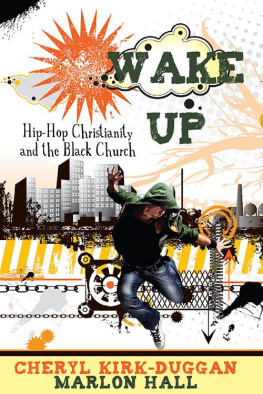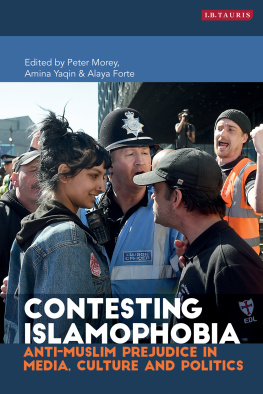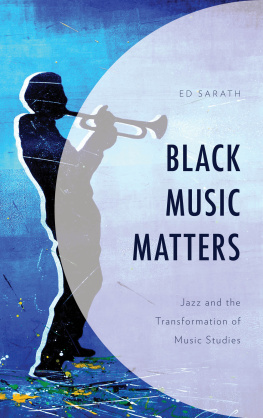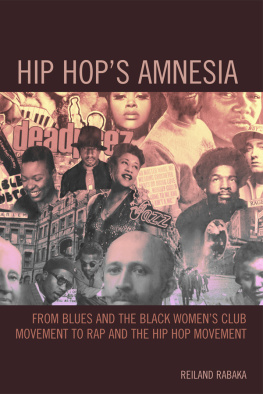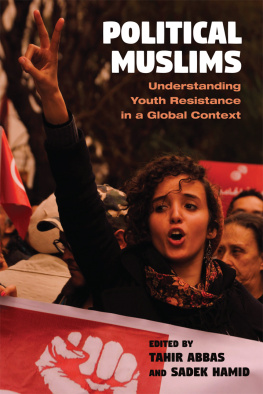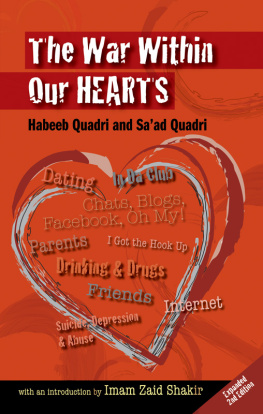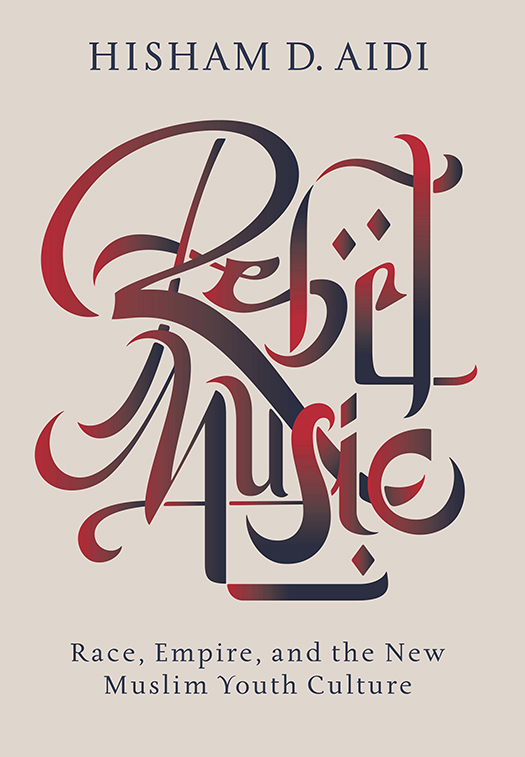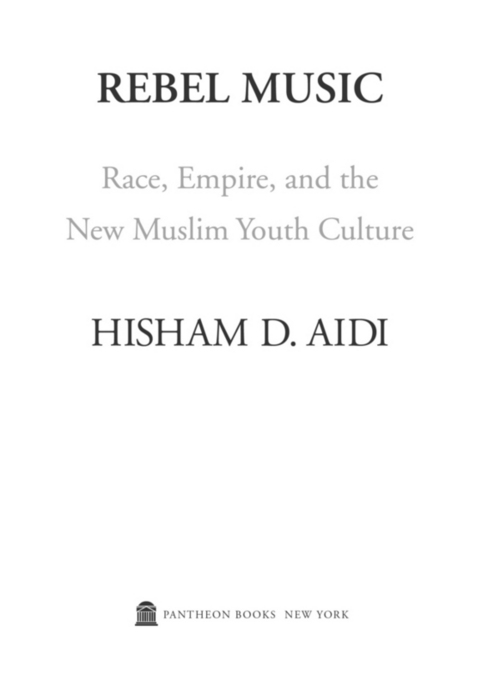Also by Hisham D. Aidi
Black Routes to Islam
Redeploying the State: Corporatism, Neoliberalism, and Coalition Politics
Copyright 2014 by Hisham D. Aidi
All rights reserved. Published in the United States by Pantheon Books, a division of Random House LLC, New York, and in Canada by Random House of Canada Limited, Toronto, Penguin Random House companies.
Pantheon Books and colophon are registered trademarks of Random House LLC.
Grateful acknowledgment is made to the following for permission to reprint previously published material:
Alfred Music Company Co., Inc.: Excerpt from Wake Up Everybody, written by John Whitehead, Gene McFadden, and Victor Carstarphen. Reprinted by permission of Alfred Music Company Co., Inc.
Tom Evans: Excerpt from Beard Is Beautiful by Tom Evans. Reprinted by permission of the artist.
Library of Congress Cataloging-in-Publication Data
Aidi, Hisham
Rebel music : race, empire and the new Muslim youth culture / Hisham D. Aidi.
pages cm
ISBN 978-0-375-42490-8 (hardback) e-BOOK 978-0-307-90868-1
1. Muslim youthWestern countriesSocial conditions. 2. Music and youthWestern countries.
3. Protest movementsWestern countries. I. Title.
BP188.18.Y68A36 2013 305.235088297dc23 2013028800
www.pantheonbooks.com
Jacket lettering by Pablo Delcn
v3.1
For Randy Weston
and
Maurice El Medioni
Contents
Prologue
One muggy afternoon in July 2003, I headed up to the South Bronx for the Crotona Park Jams, a small festival that is little-known locally, but manages to draw hip-hop fans from around the world. The annual event is organized by Tools of War, a grassroots arts organization that invites artists from across the country and Europe to perform in the Bronx, hip-hops putative birthplace, and to meet some of the genres pioneers, figures like Afrika Bambaataa and Kurtis Blow. I arrived at the park and asked around for Christie Z, a local promoter and activist. Christie, who has blue eyes and a ruddy complexion and wears a white head scarf, is the founder of Tools of War and a smaller group called Muslims in Hip Hop. She is married to Jorge Pabn (aka Fabel), a well-known dancer and master of ceremonies (MC), who appeared in the classic 1980s hip-hop film Beat Street and currently teaches poppin and lockin dance styles at NYU. The twoChristie Z & Fabel, as theyre knownare a power couple on the East Coasts hip-hop scene, but theyve become significant players internationally as well, organizing shows in Europe and bringing artists from overseas to perform in America.
Christies story is unusual. People always ask me, she says with a laugh, how did a white girl from central Pennsylvania become a Muslim named Aziza who organizes turntable battles in the Bronx? I say the lyrics brought me here. I was in high school when I heard The Message, she says, referring to the 1982 breakout song by Grandmaster Flash, which vividly described life in the ghetto during the Reagan era, and was one of hip-hops earliest mainstream hits. I heard that track and I followed the sound to New York.
I had arrived early hoping for a pre-show interview with the French rap crew 3me il (Third Eye), who had flown in from Marseille to perform that evening. The rap trio is known in France for its socially conscious lyrics. Since the invasions of Afghanistan and Iraq, the group had become even more political, rapping about what they call the Wests stranglehold on the East. I stood around the stage waiting. A circle had formed with a group of boys clapping and dancing, as the DJ on duty that eveninganother pioneer, DJ Tony Tone of the Cold Crush Brothersspun rap and Latin soul classics. Soon Third Eyes manager, Claudine, a brown-haired woman in her early twenties, appeared and led me backstage. I explained that I was a researcher at Columbia writing about global hip-hop. Her face lit up. Weve been wanting to talk to you for a while, she said, as she walked me through a backstage tent and out into the open. Later I found out Claudine had thought I was a representative of Columbia Records, about to offer her group a contract.
The sun was setting, a blue glow had enveloped the park, and I walked up to the four young men lounging on a bench facing the spectacular Indian Lake, which sits at the parks center. Soon I was chatting with the rappersBoss One (Mohammed) and Jo Popo (Mohammed), both born in the Comoros Islands off the coast of East Africa, but raised in Marseilleand their DJ, Rebel (Moustapha). They were dressed similarly in sagging denim Bermudas, eighties-style Nike high-tops, and baseball caps. Jo Popo gave me a copy of their new hit single, Si Triste (So Sad). I told him Id already seen bootlegged copies at African music stands in Harlem. He nodded and gave me a fist bump. The song, popular among West African youth in New York, offers social commentary over a looping bass line, decrying police brutality and mass incarceration (with a special shout-out to the American death-row prisoner Mumia Abu-Jamal). I asked them how the French press responded to their lyrics, and about the anti-immigrant National Front leader Jean-Marie Le Pens claim that hiphop was a dangerous musical genre that originated in the casbahs of Algeria.
Boss One shook his head, For Le Pen, everything badrap, crime, AIDScomes from Algeria or Islam. This was mid-2003; the War on Terror was in its early years. The more Bush and Chirac attack Islam and say its bad, said Boss One, the more young people will think its good, and the more the oppressed will go to Islam and radical preachers. His tone became a little defensive when talking about the banlieues, the poor suburbs that ring Frances major cities, stating that life in Frances cits was better than in the American ghettos. Life is hard in France, but we have a social safety net. Here there is no such thinghe stood up to emphasize the pointand it will get worse with Bush, the cowboy, le rancheur!
Their bluster disappeared when I asked what they thought of the Bronx. They grew wistful talking about the Mecca of hip-hop. Jo Popo smiled describing their meeting the day before with hip-hop legend Afrika Bambaataa. Ctait incroyable! Bam, as he is known, is particularly loved in France, where he was instrumental in introducing hip-hop in the early 1980s. The groups music mixer, DJ Rebel, who previously hadnt said a word, suddenly spoke up. I have dreamed of visiting the Bronx for all thirty-six years of my life. This is where hiphop started, this music which has liberated us, which has saved us, he said with apparent seriousness. Yesterday we met Bambaataa and Kool Herc. I thanked them personally for what they have done for us blacks and Muslims in Francethey gave us a language, a culture, a community. His voice broke a little.
I was struck by the emotion and sincerity of their words, and I had a few academic questions to ask: Why was the Bronx so central to the moral geography of working-class kids in Marseille? Where did this romantic view of the American ghetto come from? Why were they more fascinated by Bronx and Harlem folklore than by the culture of their parents countries of origin? Claudine suddenly reappeared and asked them to return to the tent. Grandmaster Flash, the legendary DJ and another iconic figure of global hip-hop, had arrived, and they were scheduled to meet him. Flash invented scratchingI get paid to teach scratching in France, said DJ Rebel getting up to leave.


